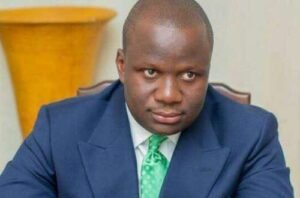
In a clash between regulatory authority and corporate rights, the Electricity Company of Ghana (ECG) has taken a firm stance against the Public Utility Regulatory Commission (PURC), demanding the immediate withdrawal of directives issued against the company and its Board of Directors. The conflict escalated following directives issued on April 15, 2024, by the PURC, instructing ECG’s Board to remit a substantial sum of GHS 5.868 million for regulatory compliance.
The Managing Director of the Electricity Company of Ghana (ECG), Samuel Dubik Mahama, promptly denounced the PURC’s directives as baseless and lacking legal merit, emphasizing ECG’s commitment to exhaust all available legal avenues to challenge the directives and ensure fair proceedings. “We will not hesitate to seek orders of certiorari, prohibition, and mandamus to challenge these directives and uphold our rights under the law,” he stated.
The PURC’s directives included four charges against ECG, such as breaches of natural justice, mismanagement of tariff revenue, failure to provide financial documentation, and inadequate notification of planned outages. However, ECG vehemently contested these accusations, arguing that the company had not received a fair hearing and that the charges lacked substantial evidence.
ECG further disputed the PURC’s authority to target individual board members, asserting that the Commission’s jurisdiction extends solely to imposing fines on the company itself, not its board members. They argued that board members, who are not directly involved in day-to-day operations, cannot be held personally responsible for the company’s actions.
Moreover, ECG challenged the PURC’s jurisdiction over its Cash Waterfall Mechanism (CWM) division, contending that the CWM falls outside the scope of legislative mandates governing utility regulation.
Acknowledging PURC’s authority to impose charges, ECG emphasized that such authority only arises under specific legislative acts and cannot be arbitrarily applied. They also questioned the legal basis for PURC’s imposition of regulatory charges and challenged the reliance on specific regulations cited by the Commission.
ECG’s stance underscores its commitment to challenging what it perceives as arbitrary and unjustified actions by the PURC. Legal arguments and constitutional interpretations are likely to shape the outcome of this contentious issue.
Meanwhile, Dr. Steve Manteaw, Chairman of the Coalition of Stakeholders on Electricity Contracts and Arrangements, expressed dissatisfaction with the Public Utilities Regulatory Commission (PURC) regarding its handling of the Electricity Company of Ghana (ECG) over the management of power outages without prior consumer notification.
Dr. Manteaw believed that the issue could have been resolved more effectively through stakeholder engagement. He lamented the public exchange between the PURC and ECG, deeming it unfortunate and avoidable.
Dr. Manteaw stressed that as a regulator, the PURC should enforce industry rules and strive to resolve stakeholder disputes. Instead of adopting a confrontational stance, he suggested that the PURC could have opted for a different approach, such as creating a forum involving all relevant parties, including the Ministry of Finance, emphasizing its critical role in the discussion.
Dr. Manteaw conveyed these sentiments in an interview with Joynews, highlighting the need for constructive dialogue and collaborative problem-solving to address issues within the energy sector effectively.






